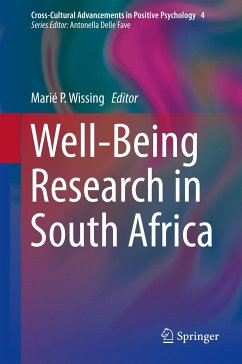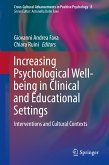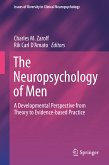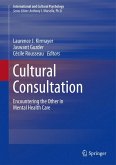Well-Being Research in South Africa (eBook, PDF)
Redaktion: Wissing, Marié P.


Alle Infos zum eBook verschenken

Well-Being Research in South Africa (eBook, PDF)
Redaktion: Wissing, Marié P.
- Format: PDF
- Merkliste
- Auf die Merkliste
- Bewerten Bewerten
- Teilen
- Produkt teilen
- Produkterinnerung
- Produkterinnerung

Hier können Sie sich einloggen

Bitte loggen Sie sich zunächst in Ihr Kundenkonto ein oder registrieren Sie sich bei bücher.de, um das eBook-Abo tolino select nutzen zu können.
This is the first book to bring together examples of research in positive psychology / psychofortology conducted in the multi-cultural South African context with its diverse populations and settings. The volume reflects basic as well as applied well-being research in the multicultural South African context, as conducted in various contexts and with a variety of methods and foci. Theoretical, review, and empirical research contributions are made, reflecting positivist to constructivist approaches, and include quantitative, qualitative, and mixed-method approaches. Some findings support…mehr
- Geräte: PC
- ohne Kopierschutz
- eBook Hilfe
- Größe: 9.89MB
![Semantics and Psychology of Spirituality (eBook, PDF) Semantics and Psychology of Spirituality (eBook, PDF)]() Semantics and Psychology of Spirituality (eBook, PDF)161,95 €
Semantics and Psychology of Spirituality (eBook, PDF)161,95 €![Understanding Relational and Group Experiences through the Mmogo-Method® (eBook, PDF) Understanding Relational and Group Experiences through the Mmogo-Method® (eBook, PDF)]() Understanding Relational and Group Experiences through the Mmogo-Method® (eBook, PDF)73,95 €
Understanding Relational and Group Experiences through the Mmogo-Method® (eBook, PDF)73,95 €![Increasing Psychological Well-being in Clinical and Educational Settings (eBook, PDF) Increasing Psychological Well-being in Clinical and Educational Settings (eBook, PDF)]() Increasing Psychological Well-being in Clinical and Educational Settings (eBook, PDF)73,95 €
Increasing Psychological Well-being in Clinical and Educational Settings (eBook, PDF)73,95 €![Japanese Psychotherapies (eBook, PDF) Japanese Psychotherapies (eBook, PDF)]() Velizara ChervenkovaJapanese Psychotherapies (eBook, PDF)105,95 €
Velizara ChervenkovaJapanese Psychotherapies (eBook, PDF)105,95 €![Applied Jewish Values in Social Sciences and Psychology (eBook, PDF) Applied Jewish Values in Social Sciences and Psychology (eBook, PDF)]() Applied Jewish Values in Social Sciences and Psychology (eBook, PDF)73,95 €
Applied Jewish Values in Social Sciences and Psychology (eBook, PDF)73,95 €![The Neuropsychology of Men (eBook, PDF) The Neuropsychology of Men (eBook, PDF)]() The Neuropsychology of Men (eBook, PDF)40,95 €
The Neuropsychology of Men (eBook, PDF)40,95 €![Cultural Consultation (eBook, PDF) Cultural Consultation (eBook, PDF)]() Cultural Consultation (eBook, PDF)113,95 €
Cultural Consultation (eBook, PDF)113,95 €-
-
-
Dieser Download kann aus rechtlichen Gründen nur mit Rechnungsadresse in A, B, BG, CY, CZ, D, DK, EW, E, FIN, F, GR, HR, H, IRL, I, LT, L, LR, M, NL, PL, P, R, S, SLO, SK ausgeliefert werden.
- Produktdetails
- Verlag: Springer Netherlands
- Seitenzahl: 639
- Erscheinungstermin: 13. Mai 2013
- Englisch
- ISBN-13: 9789400763685
- Artikelnr.: 43798986
- Verlag: Springer Netherlands
- Seitenzahl: 639
- Erscheinungstermin: 13. Mai 2013
- Englisch
- ISBN-13: 9789400763685
- Artikelnr.: 43798986
- Herstellerkennzeichnung Die Herstellerinformationen sind derzeit nicht verfügbar.







